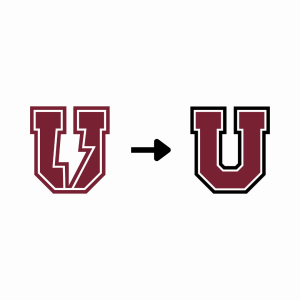Part 1: Economics major reclassified as STEM: why the distinction matters
January 12, 2023
Union College’s Economics degree has recently taken steps to be classified as a STEM degree. Professor Lewis Davis, the Chair of Union’s Department of Economics, explained why the distinction is so important: it gives international students at Union access to important job opportunities in the United States after graduating.
In the United States, international students who complete STEM majors have their visas extended for two years after they graduate, allowing them to find jobs in the United States after graduation. This does not apply to international students whose degrees aren’t concentrated in science, technology, engineering, and math. Professor Davis said international students in the economics department have been asking for the major to be included in STEM for years, because the opportunity to remain in the United States to find employment is very important to many students.
The major requirements for Union’s economics degree have not changed as a result of this, and students studying economics will still receive a Bachelor of Arts degree in economics. Class material won’t need to change, and no new classes will be added, so the reclassification will not affect the department academically. The change was made to give international students at Union job opportunities in the United States after graduation.
In the past, some students studying economics have chosen to double major in economics and math in order to have a STEM degree. Doing twice the amount of work for a degree just to be allowed to remain in the United States is unfair to these students, and reclassifying economics will put less pressure on them to double major. Professor Davis also said there may be an increase in economics majors after this change, a result of international students who would otherwise major in disciplines like political science wanting a similar degree that would extend their visas. Managerial Economics, which is classified as a business degree and not considered STEM, may find its number of international students significantly dropping for the same reason.
Including economics in STEM won’t just benefit the international students, but Union College as a whole. Professor Davis mentioned that if more Union graduates stay in the United States after graduating, it results in an increased number of easily accessed alumni who can be resources for students, a good tool for networking and advice on future careers. Alumni being otherwise involved with the college, as a resource or for financial support, is beneficial to Union.
Considering the amount of mathematics required in economics, it’s no reach to say it should be included under the STEM umbrella. Professor Davis explained to me that many basic concepts in economics rely on calculus and linear algebra can be applied to economics. It makes sense to include economics in STEM– but why is that the deciding factor as to whether or not international students get to stay in the first place?
The United States government added the extended time to STEM students’ visas in order to promote the advancement of technology in the United States, which is a great opportunity for many students, but I find it difficult to justify refusing to give this opportunity to non-STEM majors. As previously mentioned, having a large pool of accessible alumni benefits colleges academically and financially. In addition, countless non-STEM disciplines benefit the United States economy and help further the interests of the country as a whole. It makes sense to me to give every student the opportunity to stay and look for a job in the United States. Unless the government changes its policies for student visas, there isn’t much that colleges can do to help non-STEM students with this, but helping students in disciplines that are science-related, such as economics, is significant progress.






